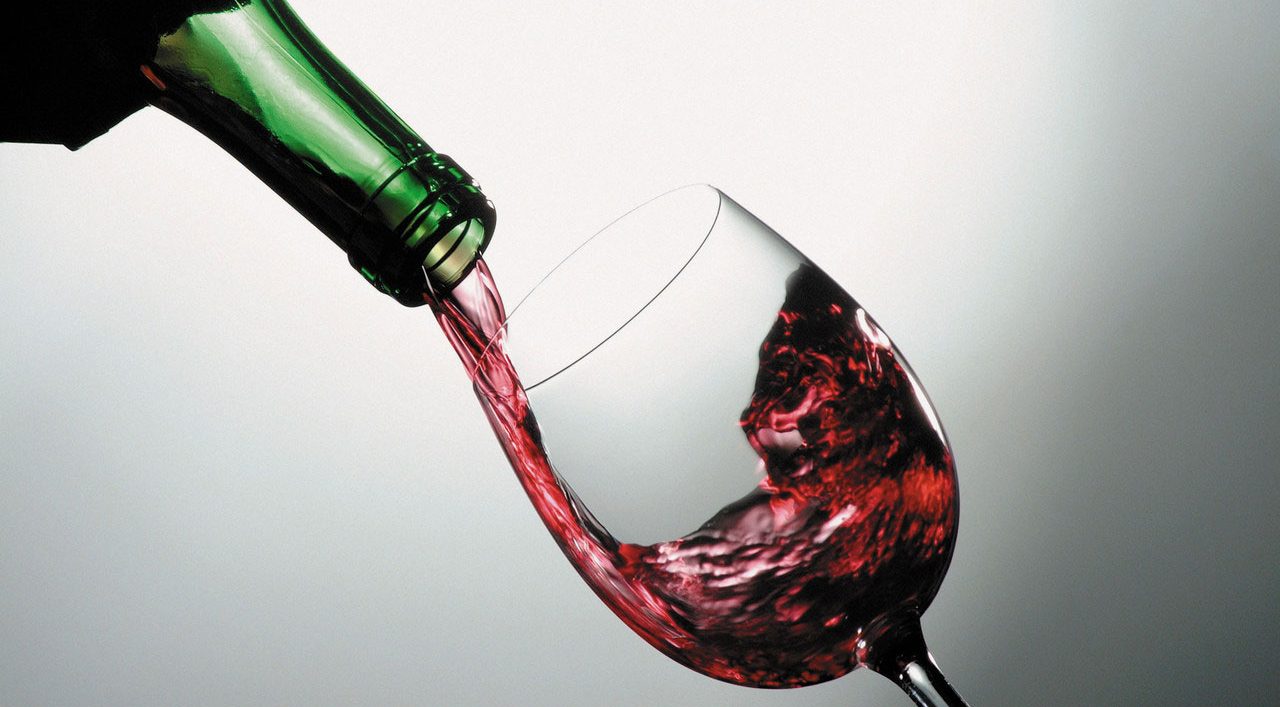Red Wine Benefits May Improve Cancer Treatment

Two nutrients in red wine may protect against heart disease. Among other benefits may be the power to kill cancer cells and enhance cancer treatments.
Polyphenols, nutrients in plants, have received scrutiny from scientists for decades. It’s becoming clearer that two in particular, resveratrol and quercetin, may provide protection from both cardiovascular disease and cancer.
Resveratrol, found in grape skin, can kill cancer cells, particularly those associated with breast cancer and esophageal cancer. By blocking the development of a key protein, the polyphenol in effect starves the cancer.
YOU MIGHT ALSO LIKE: 15 Fake-Healthy Consumer Products
Are there red wine benefits?
It mostly comes down to resveratrol, which is plentiful in not only grapes and wine but also peanuts, cocoa, blueberries, and cranberries.
Resveratrol may help improve short-term memory. It may cut memory deficits linked to sleep deprivation and boost learning ability. It may even possibly lower the risk of dementia. Resveratrol is also good for your eyes and teeth.
One large study found that drinking red wine with meals cuts the risk of developing type 2 diabetes.
Like resveratrol, quercetin is a powerful antioxidant. Previous laboratory and animal studies have revealed it has anti-tumor properties. Foods rich in quercetin include capers, some fruits and berries, kale, and onions.
The alcohol and antioxidants in red wine may help prevent coronary artery disease. The antioxidants may increase HDL cholesterol (good cholesterol), decrease LDL (bad cholesterol) levels, and help prevent blood clots.
It is not recommended that you start drinking alcohol for heart benefits, especially if you have a family history of problems with alcohol.
If you already drink red wine, women should drink no more than one glass a day. Men over 65 should have only one glass; men under that age should have no more than two.
Polyphenols combined with cancer treatment
The nutrients in red wine have a variety of positive effects related to breast cancer and other cancers. The key is an effective delivery system.
In laboratory experiments, a team at Oregon State and Pacific University developed a system to make both polyphenols more bioavailable, water soluble, and injectable into the bloodstream.(This approach has benefits far beyond what one could get from drinking red wine.)
The goal was to reduce the toxic impact of the anti-cancer drug doxorubicin (Adriamycin). The drug is extremely effective at treating breast, ovarian, lymphomas, and other cancers.
One caveat is that Adriamycin can’t be used for long because it can lead to heart failure, potentially dangerous arrhythmias, and other serious cardiac problems.
More red wine benefits?
What’s more, the research suggests natural polyphenols could turn out to be valuable cancer therapies themselves — either when used alone or combined with a wide scope of cancer-fighting agents.
Studies have previously demonstrated that both resveratrol and quercetin appear to be safe even at high concentrations in the body. In addition, the Oregon State delivery system that delivers polyphenols in high levels with the cancer drug are already approved by the Food and Drug Administration.
Those factors should speed up clinical testing and the potential medical application of combining high doses of polyphenols with Adriamycin to treat cancers.
"There are several advantages with this system," said Adam Alani, associate professor in the Oregon State University/Oregon Health & Science University College of Pharmacy and lead author of the research. "We can finally reach clinical levels of these polyphenols in the body. We can load both the compounds at one time to help control the cardiotoxicity of the cancer drug, and we can help the polyphenols accumulate in cancer cells where they have their own anti-cancer properties. This is like hitting three birds with one stone.”
Updated:
April 13, 2023
Reviewed By:
Christopher Nystuen, MD, MBA and Janet O'Dell, RN